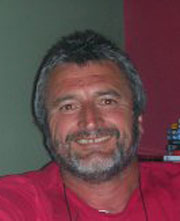- My Cart
0
No items in cart
- My Cart
0
No items in cart
 PCCS pays your UK postage
PCCS pays your UK postage
This title will be printed and dispatched directly from our print-on-demand supplier. Your book will be delivered within 7 working days.
Making and Breaking Children’s Lives examines how children are hurt in modern society. We hear much about the effects of early abandonment, abuse and lack of attachment, but find that children’s experiences are sanitised through medical diagnoses and frequently the 'help' offered is prescription drugs. Nowhere is this more evident than in the current trend to label children with ADHD. In this challenging book a plurality of voices returns to one consistent theme – the importance of psychosocial context, which has become increasingly dismissed as being irrelevant in the rush to label and prescribe. However there is hope – the final section describes inspiring examples of how services and communities can be developed to give children and their families a chance to prosper – evidence that there is nothing inevitable about the breaking of children's lives.
In his foreword, Oliver James says: It is not easy for professionals to find the time and energy to set out on paper what they do and how it helps to counter the toxins filling the emotional environment in which most children are now raised. I have the greatest admiration for such people. Donald Winnicott once argued that sanity is preserved in any society by the 10 per cent of the population who are emotionally mature; the ones who are not ‘me, me, me’ attention-seekers but who quietly get on with providing the sensible yet playful support which is so life-saving. There are many such here. This book is chock-a-block with accounts of practical ideas and mindsets for neutralising the toxins in our social environment, as well as scientific evidence that there is nothing remotely inevitable about the breaking of children. Government ministers: Read, Learn and Inwardly Digest. Oliver James, Psychologist, author and commentator.
Contents
Part One: Constructing Childhood
1. Gerrilyn Smith: Constructions of childhood
2. Jonathan Calder: Histories of child abuse
3. Elina Baker and Craig Newnes: The discourse of responsibility
4. Freddy Jackson Brown: ADHD and the philosophy of science
5. Geraldine Brady: ADHD, diagnosis and identity
Part Two: Problematising Children
6. Sami Timimi and Nick Radcliffe: The rise and rise of ADHD
7. Dorothy Rowe: ADHD – Adults’ fear of frightened children
8. Arlene Vetere and Jan Cooper: The effects of domestic violence: Trauma, relisience and breaking the cycle of violence
9. Grace Jackson: Cybernetic children: How technologies change and constrain the developing mind
Part Three: Appreciating Children
10. Helen Rostill and Helen Myatt: Constructing meaning in the lives of looked after children
11. Katherine Weare: Taking a positive, holistic approach to the mental health and well-being of children and young people.
12. Raj Bandak: Empowering vulnerable children and families
13. Carl Harris: The Family Well-being Project: Providing psychology services for children and families in a community regeneration context
14. Bliss W. Browne: Imagine Chicago: Cultivating hope and imagination
More and more children are being caught up in the mental health system. One sign of this is the increased use in the UK of the diagnosis of Attention Deficit Hyperactivity Disorder (ADHD), up from less than 10,000 cases in 1990 to more than 200,000 today. Another is the widespread prescribing of the stimulant Riatlin as a treatment. Making and Breaking Children's Lives confronts this situation head on, offering a robust critique and advocating an holistic approach to children's problems where psychosocial context is given great prominence. Peter Campbell, Openmind March/April 2006
Concise and to the point, yet also reflective and measured, this book never loses the plot and will be of interest to psychologists, health care professionals and others who seek to support children and their families. Nuala Quiery, Counsellor, Therapy Today December 2005
It is not easy for professionals to find the time and energy to set out on paper what they do and how it helps to counter the toxins filling the emotional environment in which most children are now raised. I have the greatest admiration for such people. Donald Winnicott once argued that sanity is preserved in any society by the 10 per cent of the population who are emotionally mature; the ones who are not ‘me, me, me’ attention-seekers but who quietly get on with providing the sensible yet playful support which is so life-saving. There are many such here. This book is chock-a-block with accounts of practical ideas and mindsets for neutralising the toxins in our social environment, as well as scientific evidence that there is nothing remotely inevitable about the breaking of children. Government ministers: Read, Learn and Inwardly Digest. Oliver James. Psychologist, author and commentator
Craig Newnes is editor of The Journal of Critical Psychology, Counselling and Psychotherapy (formerly Changes), and a commissioning editor and author for our Critical Psychology series. Prior to his retirement he was Director of Psychological Therapies for Shropshire. He has a life time commitment to the NHS and is an outspoken critic of the hypocrisy, self interest, confusion and downright lies which characterise so much of the practise of psychiatry and psychology. He believes that unhappiness is a form of heresy and most of the misery for which people seek help is only amenable to alleviation through changes in their material lives.

Nick Radcliffe is a consultant clinical psychologist who for years worked in child and family mental health Telford, England. He currently practices privately.